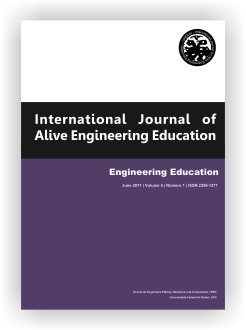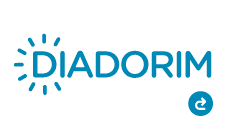Clube de Revista “Seminários em Periódicos de Excelência Parte IV”
DOI:
https://doi.org/10.5216/ijaeedu.v4i1.44362Abstract
Tradicionalmente, em muitos departamentos são organizados núcleos de discussão denominados Clubes de Revista sobre temáticas envolvendo artigos e descobertas dentro da comunidade científica. Nesses núcleos, os envolvidos são familiarizados com artigos científicos, possuem um prazo para estudá-los, para depois apresentá-los e discuti-los. Os artigos pré-selecionados são, em sua maioria, recentes e não relacionados. Neste trabalho, a participação no Clube de Revista da UFTM – conhecido como BBS – colaborou de forma notória na construção do conhecimento, foi um grande incentivador à maior procura por iniciação científica e os alunos participantes estavam muito mais preparados para o desenvolvimento de projetos quando comparados aos demais alunos que não haviam participado. Ainda quanto a Iniciação Científica, o BBS promoveu uma maior interação tanto entre orientador e orientado, como entre os alunos participantes, incrementando o conhecimento científico atualizado, na fundamentação dos artigos científicos utilizados, além de possibilitar o treino dos participantes nas diferentes formas de explorar figuras, tabelas, gráficos.
References
. F. M. G. S. C. Moita, F. C. B. Andrade, Ensino-pesquisa-extensão: Um exercício de indissociabilidade na pós-graduação. Rev. Bras. Educ., Rio de Janeiro, v. 14, n. 41, ago. 2009.
. N. A. M. Pinheiro, R. M. C. F. Silveira, W. A. Bazzo, Ciência, Tecnologia e Sociedade: a relevância do enfoque CTS para o contexto do Ensino Médio. Ciênc. educ. (Bauru), Bauru, v. 13, n. 1, abr. 2007.
W. A. Bazzo, Ciência, Tecnologia e Sociedade: e o contexto da educação tecnológica. Florianópolis: Ed. da UFSC, 1998.
Brasil. Constituição (1988). Constituição da República Federativa do Brasil. Brasília, DF, Senado,1998.
S. R. Daly, E. A. Mosyjowski, C. M. Seifert, Teaching Creativity in Engineering Courses. Journal of Engineering Education, v. 103(3), 2014, p.417–44.
S. Bakrania, Integration of Journal Club ideology into a nanotechnology course. Conference paper. American Society for Engineering Education. v.17, 2010, p. 14190 – 14202.
S. Akhund, M. M. Kadir, Do community medicine residency trainees learn through journal club? An experience from a developing country. BMC Medical Education. v.6, 2006, p.43. DOI: 10.1186/1472-6920-6-43
S. L. Hattoy, B. C. Childress, A. Jett, J. Montney, Enhancing experiential education: Implementing and improving the journal club experience. Currents in Pharmacy Teaching and Learning, v.7, 2015, p.389–394.
L. P. Piazzolla, F. M. Scoralick, J. B. Sousa, Clube de revista como estratégia de aprendizado na residência médica. Brasília médica, v.49(1), 2012, p.55-58.
D. J. Good, C. M. Mcintyre, Use of Journal Clubs Within Senior Capstone Courses: Analysis of Perceived Gains in Reviewing Scientific Literature. Journal of Nutrition Education and Behavior, v.47, 2015, p.5.
Downloads
Published
Issue
Section
License
Copyright
The author is responsible for the following statements by submitting an article electronically in the International Journal of Alive Engineering Education (IJAEEdu):
a) States that the document in question was reviewed by an expert in English language and it is an original work and it holds the prerogative to grant the rights contained in this license. It also states that the document does not infringe, as far as it is possible to know the rights of any other person or entity.
b) If the document in question contains material which does not hold the copyright, the author states have obtained the copyright holder’s permission to grant the Universidade Federal de Goiás (UFG) the rights required by this license, and that such material whose rights are third is clearly identified and acknowledged within the text or content of the document.
c) States that the study was conducted in accordance with the ethical standards of all applicable institutional, local, national and international guidelines.
d) It also states that any person appointed as author or co-author of the document is aware of it and agrees to be so appointed.
Authorization Form
As responsible for the submission of the document, I authorize the School of Electrical, Mechanical and Computer Engineering of the Federal University of Goiás to provide the paper free of charge, through the Electronic System for Publishing Magazines UFG (SEER / UFG) or in printed form, without compensation of copyright, in accordance with Law No. 9610/98. Is allowed, reading, printing and / or download, as a promotion of the Brazilian scientific production. Any use of the work not authorized under this license or the copyright law is prohibited.



